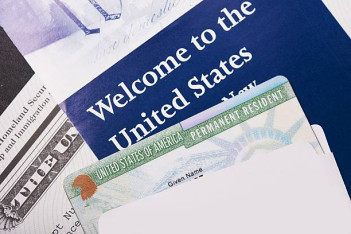Estate and Inheritance Tax for Non-Residents: An In-Depth Guide
In the complex world of international finance, non-residents owning assets in the United States face a unique set of challenges relating to estate and inheritance taxes. The U.S. imposes an estate tax on assets located within its jurisdiction, which can reach rates as high as 40%. Understanding how these taxes work, and the strategic planning necessary to protect one's estate and beneficiaries, is essential for anyone with cross-border holdings.
Understanding U.S. Estate and Inheritance Tax
Estate tax in the United States applies to the transfer of property upon an individual's death. Unlike inheritance tax, which is levied on the beneficiaries receiving the assets, estate tax is assessed on the deceased's estate before distribution. For non-residents, U.S. estate tax applies only to U.S.-situated assets, notably real estate, tangible personal property, and certain financial investments.
The current federal estate tax rate can reach up to 40%, which can significantly reduce the value of the estate before it passes to heirs. The exemption thresholds for non-resident aliens are notably lower compared to U.S. citizens and residents. For example, as of 2025, a non-resident alien is entitled to a $60,000 exemption on U.S. assets, whereas U.S. citizens enjoy an exemption that exceeds $12 million. This discrepancy highlights the heightened importance of proactive estate planning for non-resident asset holders.
Types of U.S. Assets Subject to Estate Tax for Non-Residents
To effectively plan for estate tax, it is critical to identify which assets are subject to U.S. estate tax for non-residents. These generally include:
- U.S. real property, including residential and commercial real estate.
- Tangible personal property located in the United States, such as artwork, jewelry, and collectibles.
- Shares of stock in U.S. corporations, depending on the percentage of ownership.
- Certain U.S. debt obligations, although some are exempt under current tax treaties.
Conversely, assets such as foreign stocks and bonds, bank accounts outside the U.S., and real estate located outside the United States typically fall outside the scope of U.S. estate tax for non-residents.
Issues Faced by Non-Residents Without Proper Planning
Without strategic estate planning, non-residents owning U.S. assets risk having their estates diminished substantially by the federal estate tax. Individuals might find that their heirs receive far less than anticipated due to heavy taxation. Additionally, the process of federal estate tax administration can be complicated and time-consuming, with potential legal and administrative hurdles, delaying asset distribution.
The lack of planning may also result in forced sales of assets to cover tax liabilities, which can disrupt investment portfolios or family businesses. Estate taxes are due within nine months of death, often requiring liquidity that estates of illiquid assets might not immediately provide.
Strategies to Minimize Estate and Inheritance Tax for Non-Residents
Effective planning is paramount for non-resident owners of U.S. assets to preserve estate value and ensure a smooth transfer to heirs. Several strategies can be utilized to minimize exposure to U.S. estate taxes:
- Use of Foreign Entities: Holding U.S. assets through foreign corporations or other legal entities can effectively remove direct ownership, potentially excluding those assets from U.S. estate tax. However, this strategy must be carefully structured to comply with IRS regulations and avoid unintended tax consequences.
- Establishing Trusts: Trusts, such as foreign or domestic trusts, can provide estate planning benefits by controlling asset disposition and possibly reducing estate tax exposure, depending on the trust type and jurisdiction. Specialized irrevocable trusts often allow assets to pass outside the taxable estate.
- Gifts and Lifetime Transfers: Making use of gift tax exclusions can reduce estate size before death. Non-residents should understand the annual gift tax exclusion amounts and regulations on taxable gifts to U.S. persons.
- Utilizing Tax Treaties: The United States has estate tax treaties with certain countries which can limit the taxation of assets or provide alternative basis methods for estate valuation. Planning within the parameters of these treaties can significantly reduce tax liability.
- Life Insurance Policies: Strategically purchasing life insurance to cover anticipated estate taxes can provide liquidity to heirs and prevent asset sales. Moreover, certain policy ownership structures can exclude the death benefit from estate taxation.
The Role of Professional Legal and Tax Advisors
Proper estate tax planning for non-residents is highly specialized and requires comprehensive understanding of both U.S. tax law and international considerations. Professional advisors—attorneys, tax consultants, and financial planners—play a crucial role in the process. They help tailor strategies that fit an individual's asset mix, residency status, family circumstances, and cross-border tax implications.
Advisors assist with navigating complex IRS regulations, interpreting tax treaties, structuring trusts or entities, and preparing necessary documentation to ensure compliance. Choosing experienced professionals helps minimize risks of audit, penalties, or unexpected tax burdens on heirs.
Key Considerations When Planning for Estate Tax in 2025
With evolving tax laws and international financial landscapes, staying informed about current regulations is critical. As of 2025, non-resident aliens retain a $60,000 exemption on U.S. estate tax, but with a marginal rate as high as 40% beyond that limit. Additionally, numerous states impose their own inheritance or estate taxes, which may apply to certain assets.
Currency fluctuations, changing tax treaties, and amendments in IRS guidelines must be continuously monitored to adapt estate plans effectively. Early planning and regular reviews of estate structures help ensure that strategies remain optimal and compliant with the law.
Common Myths About Estate Taxes for Non-Residents
There are several misconceptions that often deter non-residents from engaging in estate planning for their U.S. assets. Addressing these myths is essential for informed decision-making:
- "Only U.S. citizens pay estate tax." — Non-residents with U.S. assets are also subject to estate tax on those assets.
- "Estate tax can be avoided by simply gifting assets." — Gifting strategies have limits and can trigger gift taxes; proper planning is necessary.
- "Trusts are only for the wealthy." — Trusts can be tailored for various asset sizes and situations.
- "Estate planning is only about taxes." — Effective planning also addresses asset protection, confidentiality, and efficient distribution.
Practical Steps for Non-Residents to Protect Their U.S. Assets
Initiating estate planning can seem daunting, but taking incremental steps can significantly improve outcomes:
- Inventory and categorize all U.S. assets to determine exposure.
- Consult with legal and tax advisors experienced in international estate planning.
- Consider establishing appropriate holding entities or trusts early.
- Review and update beneficiary designations on financial accounts and insurance policies.
- Plan for liquidity needs to cover estate taxes and related expenses to avoid forced asset sales.
- Keep abreast of legal changes and review estate plans regularly.
How Our Legal Marketplace Consultant Can Assist You
Navigating U.S. estate and inheritance tax laws as a non-resident can be challenging without expert guidance. Our Legal Marketplace Consultant offers comprehensive legal support tailored to your unique circumstances. We provide:
- Detailed assessment of your asset portfolio and tax exposure.
- Customized estate planning strategies including trust and entity formation.
- Assistance with tax treaty application and interpretation.
- Coordination with international legal and tax professionals for holistic planning.
- Ongoing support to adapt your plans as laws evolve.
If you own assets in the United States, don't risk losing a large portion of your estate to taxes. Contact our Legal Marketplace Consultant through the communications provided in our bio or send us a private message for an initial consultation. Protect your investments and provide security for your heirs with informed and proactive planning.
Estate and inheritance tax planning for non-residents holding U.S. assets is a vital aspect of cross-border wealth management. With potential tax rates reaching up to 40%, the lack of proper planning can severely impact the value passed on to heirs. Strategic structuring through foreign entities, trusts, gifts, and utilization of tax treaties can mitigate these risks effectively.
Engaging experienced legal and tax professionals ensures compliance with current laws and optimizes estate preservation. As U.S. tax regulations continue to evolve, maintaining an adaptable and well-informed approach to estate planning is necessary. Our Legal Marketplace Consultant is dedicated to guiding you through this process, helping protect your assets and secure your family’s financial future.
Legal Marketplace Consultant — your trusted partner in comprehensive legal services and international estate tax planning. Our team includes expert attorneys, tax consultants, and financial advisors focused on delivering tailored solutions to non-resident asset holders in the United States. Reach out today for professional guidance and peace of mind.































